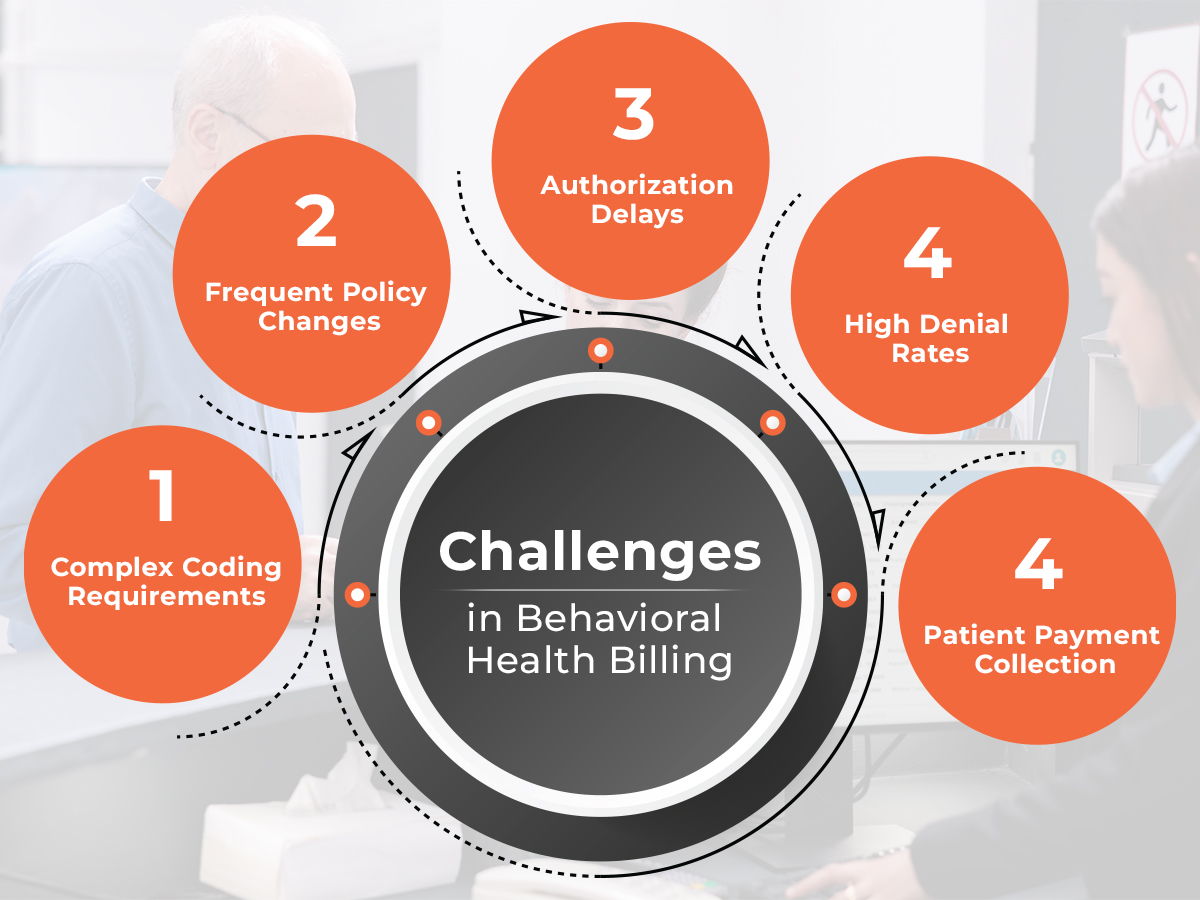Behavioral health billing plays a crucial role in ensuring that mental health and substance abuse treatment providers receive timely and accurate reimbursement for their services. As behavioral health services gain recognition and demand increases, understanding the nuances of behavioral health billing has become more important than ever. This blog dives into the essentials of behavioral health billing, its challenges, and best practices for optimizing the process.
What Is Behavioral Health Billing?
Behavioral health billing refers to the specialized process of submitting claims and receiving payments for services related to mental health and substance abuse treatments. Unlike general medical billing, behavioral health billing includes unique codes, documentation requirements, and payer regulations that providers must navigate.
Key Components of Behavioral Health Billing
- Comprehensive Patient Information: Accurate collection of patient demographics, insurance details, and treatment plans is vital for seamless claims processing.
- Insurance Verification: Behavioral health services often require preauthorization. Verifying coverage ensures that treatments are reimbursed and reduces the likelihood of claim denials.
- Proper Coding: Behavioral health billing relies on specific coding systems like:
- ICD-10 Codes: Used to diagnose mental health disorders.
- CPT Codes: Identifies therapeutic services such as psychotherapy or group counseling.
- HCPCS Codes: Applies to medications or additional supplies.
- Detailed Documentation: Therapists and providers must document every session accurately to support claims and ensure compliance with regulations.
- Claims Submission: Behavioral health claims must be submitted through appropriate channels (e.g., electronic or paper submissions) with all required details to avoid delays.
- Denial Management: Addressing denied claims is critical. Providers must understand denial reasons, rectify issues, and resubmit claims promptly.
Challenges in Behavioral Health Billing
Behavioral health billing comes with unique hurdles, including:

- Complex Coding Requirements: Incorrect codes or omitted details can result in claim rejections.
- Frequent Policy Changes: Regulations for behavioral health services often differ by state and payer.
- Authorization Delays: Behavioral health services frequently require pre-approvals, leading to potential treatment delays.
- High Denial Rates: Miscommunication or missing information can increase the likelihood of denials.
- Patient Payment Collection: High deductibles or co-pays can lead to difficulties in collecting patient payments.
Best Practices for Behavioral Health Billing
To streamline behavioral health billing, consider implementing these strategies:
- Use Specialized Billing Software: Invest in billing systems designed specifically for behavioral health providers. These tools ensure compliance with industry standards and simplify claims management.
- Stay Updated on Regulations: Keep track of changes in coding practices, payer requirements, and state or federal laws to avoid compliance issues.
- Outsource Billing Services: Partnering with professional behavioral health billing services can reduce administrative burdens and improve revenue cycle efficiency.
- Train Your Staff: Equip your administrative team with training on behavioral health billing, coding, and claims processes to minimize errors.
- Monitor Metrics: Regularly review metrics such as denial rates, days in accounts receivable, and collection rates to identify areas for improvement.
Why Behavioral Health Billing Matters
Efficient behavioral health billing is essential for providers to maintain financial stability and focus on delivering quality care. A streamlined billing process reduces administrative stress, minimizes revenue leakage, and ensures patients continue receiving the care they need.
Conclusion
Behavioral health billing may seem complex, but with the right tools, knowledge, and practices, providers can optimize their revenue cycle and focus on what truly matters—helping patients achieve better mental health outcomes. Whether you’re a small practice or a large organization, mastering behavioral health billing is key to sustaining and growing your practice.





